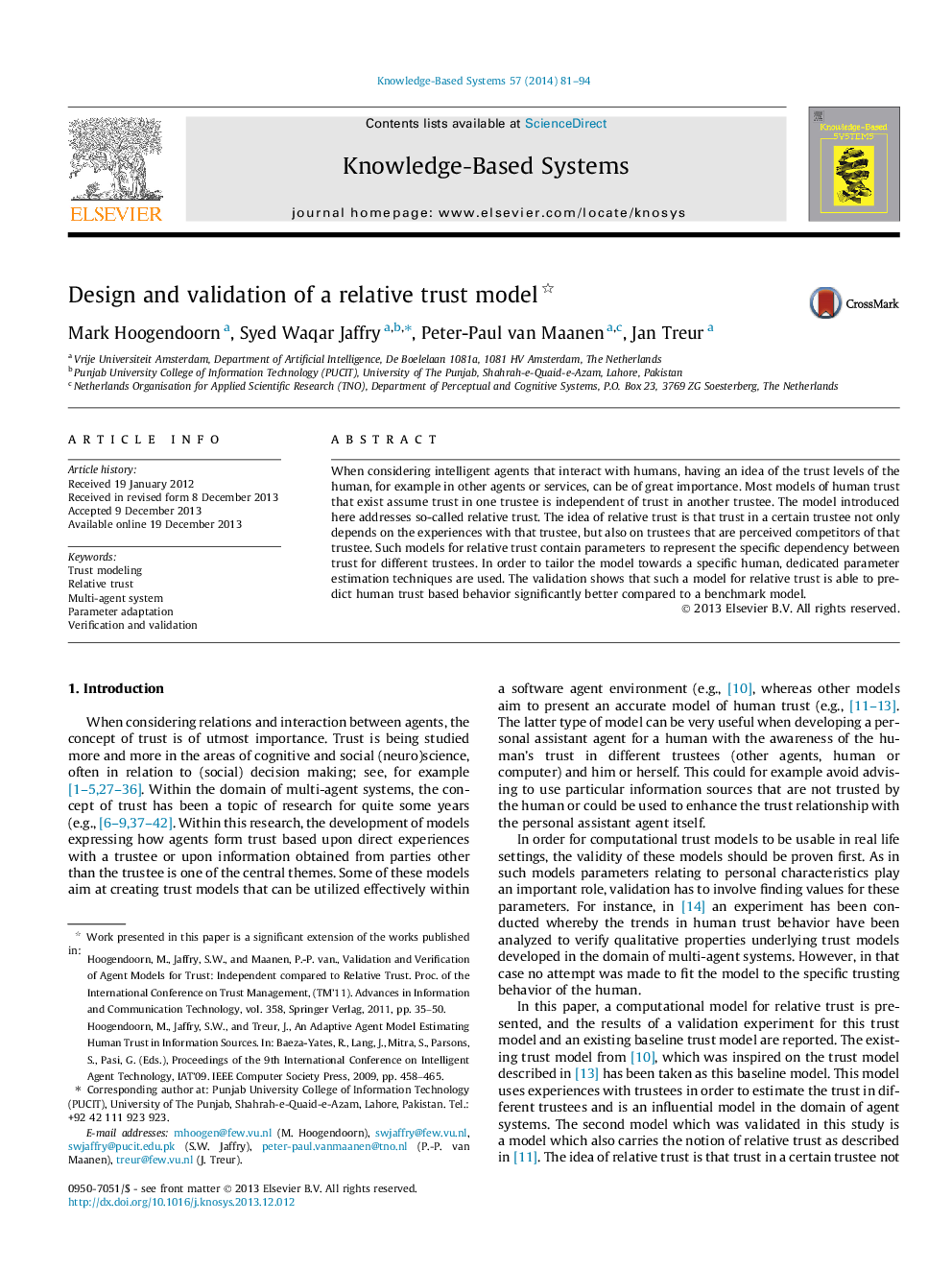| Article ID | Journal | Published Year | Pages | File Type |
|---|---|---|---|---|
| 402711 | Knowledge-Based Systems | 2014 | 14 Pages |
When considering intelligent agents that interact with humans, having an idea of the trust levels of the human, for example in other agents or services, can be of great importance. Most models of human trust that exist assume trust in one trustee is independent of trust in another trustee. The model introduced here addresses so-called relative trust. The idea of relative trust is that trust in a certain trustee not only depends on the experiences with that trustee, but also on trustees that are perceived competitors of that trustee. Such models for relative trust contain parameters to represent the specific dependency between trust for different trustees. In order to tailor the model towards a specific human, dedicated parameter estimation techniques are used. The validation shows that such a model for relative trust is able to predict human trust based behavior significantly better compared to a benchmark model.
